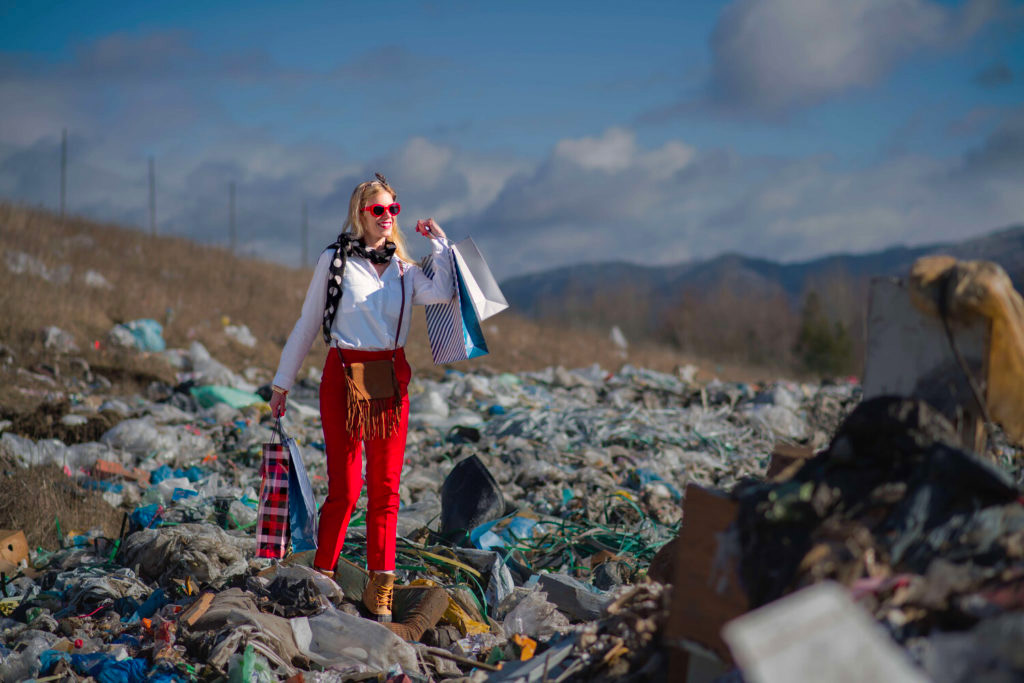
When starting out in the world of fashion sustainability, the terminology can be confusing. Here is some common jargon to help you better understand what experts are saying and help you make a difference.
Fast Fashion- A highly profitable and exploitative business model based on replicating catwalk trends and high-fashion designs, mass-producing them at low cost
Slow Fashion- The opposite to fast fashion and part of the “slow movement”, which advocates for manufacturing in respect to people, environment, and animals
Minimalism- Striving to only use things that serve a purpose. It’s about living simply and having only what you need to go about your daily life.
Greenwashing- A common marketing ploy designed to make products seem more sustainable than they are. In this way, companies use greenwashing to appeal to customers who care about the environment without having to make meaningful changes in their business practices.
Circular Fashion- Clothes, shoes, or accessories that are designed, sourced, produced, and provided with the intention to be used and circulate responsibly and effectively in society for as long as possible in their most valuable form, and hereafter return safely to the biosphere when no longer
Mending- Repair (something that is broken or damaged)
Thrifting/Secondhand Shopping- To go shopping at a thrift store, garage sale, or flea market where you’ll find gently used items at discounted prices
Climate Change- Long-term shifts in temperatures and weather patterns. These shifts may be natural, but since the 1800s, human activities have been the main driver of climate change, primarily due to the burning of fossil fuels (like coal, oil, and gas) which produces heat-trapping gases
Upcycle- The process of transforming by-products, waste materials, useless, or unwanted products into new materials or products perceived to be of greater quality, such as artistic value or environmental value
Recycle- Convert (waste) into reusable material
Reuse- Use again or more than once
Reduce- Make smaller or less in amount, degree, or size
Carbon Footprint- The total amount of greenhouse gases (including carbon dioxide and methane) that are generated by our actions
Sustainable- Able to be maintained at a certain rate or level
Post-Consumer Waste- A waste type produced by the end consumer of a material stream
Raw Materials- A basic material that is used to produce goods, finished products, energy, or intermediate materials that are feedstock for future finished products
Natural Fabric- Woven or knitted from fibers that occur in our natural world
Synthetic Fabric- Fibers made by humans through chemical synthesis
Microplastics/Microfibers- Fragments of any type of plastic less than 5 mm in length. They cause pollution by entering natural ecosystems from a variety of sources, including cosmetics, clothing, and industrial processes.
Production Cycle- All activities related to the conversion of raw materials into finished goods
Pollution- The introduction of contaminants into the natural environment that causes adverse change
Carbon Emissions- The release of carbon into the atmosphere
Greenhouse Gas (GHG) Emissions- The release of any gas that has the property of absorbing infrared radiation
Carbon Neutral/Carbon Offsetting- The carbon emissions caused by them have been balanced out by funding an equivalent amount of carbon savings elsewhere in the world
Fair Trade- Trade between companies in developed countries and producers in developing countries in which fair prices are paid to the producers
Consumer- A person or a group who intends to order or use purchased goods, products, or services
Traceability- The ability to trace all processes from procurement of raw materials to production, consumption and disposal to clarify “when and where the product was produced by whom
Transparency- Being honest and open when communicating with stakeholders about matters related to the business
Biodegradable- Capable of being decomposed by bacteria or other living organisms
Zero Impact- Is resulting in neither a surplus nor a deficit of something specified when gains and losses are added together